Chipping away at Omerta
Some very big names have said Mea Culpa recently, baring their souls and admitting to doping within...
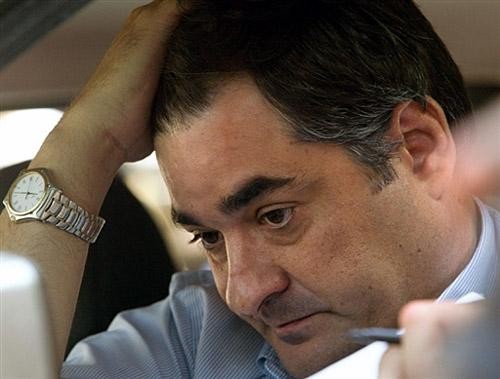
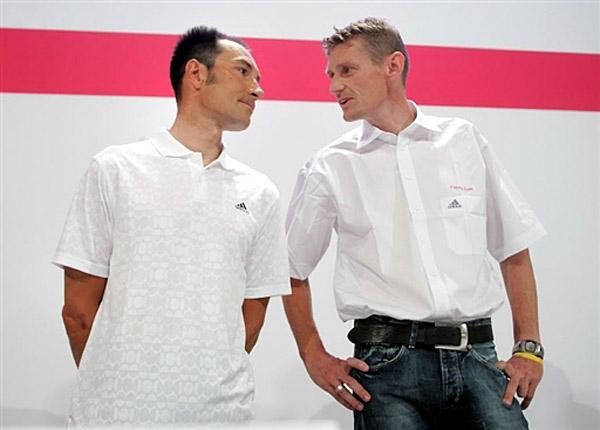
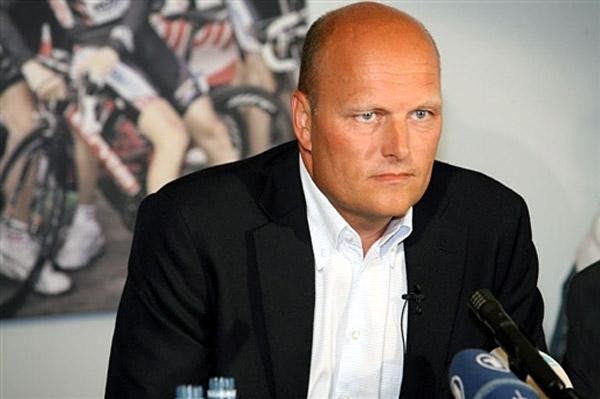
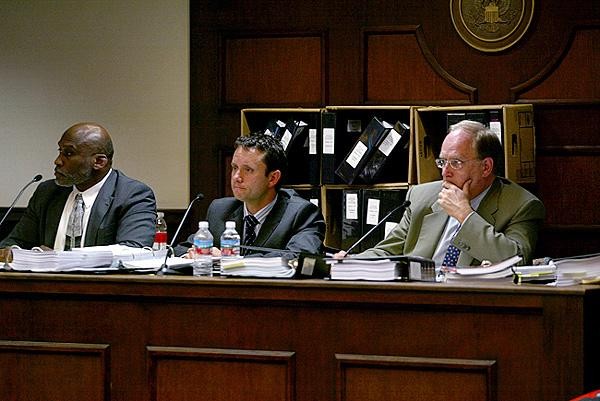
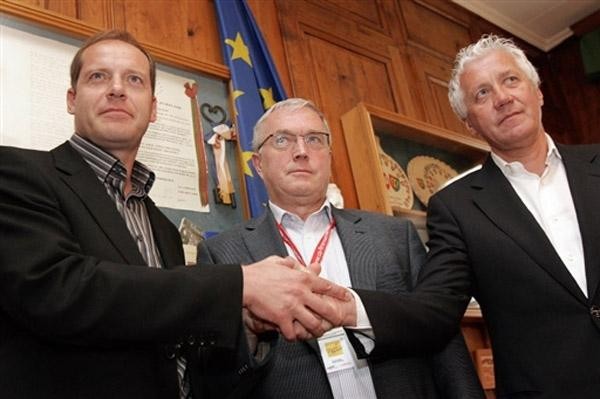
News feature: May 28, 2007
Some very big names have said Mea Culpa recently, baring their souls and admitting to doping within the sport. Bjarne Riis and Erik Zabel will be criticised by many for using banned substances, but in taking the step to admit their errors, they have moved things forward for cycling. UCI President Pat McQuaid gave his reaction to Cyclingnews’ Shane Stokes.
Just over a year ago the Operación Puerto affair broke when Eufemiano Fuentes, Manolo Saiz and others were arrested in Madrid and charged in connection with doping in cycling. The time since has been an extremely turbulent one, with the enquiry implicating many big-name riders and bringing about the retirement of Jan Ullrich and the suspension of Ivan Basso.
The months since then have also seen Tour de France winner Floyd Landis being suspended and charged with doping during the race, with the outcome of his recent USADA hearing set to be delivered in the weeks ahead.
Apart from the Landis hearing, doping was in the news in recent days when a spate of riders connected with the former Telekom team confessed to using EPO and other products during the 1990s. Rolf Aldag, Udo Bolts, Christian Henn, Brian Holm and others admitted doping, with the two highest-profile names being current Milram rider Erik Zabel and CSC manager Bjarne Riis. Both said they took EPO during the 1996 Tour de France, which was won by the latter.
Pat McQuaid has been UCI president during perhaps one of the most rocky times for cycling. The Irishman acknowledges that recent months have been very difficult for the sport, but hopes that this process signals a change in mentality and will help bring about a better future.
“My reaction [to Bjarne Riis’ confession] is the same as that to the two Germans [Zabel and Aldag] yesterday,” he told Cyclingnews on Friday evening, speaking from the Pan-American cycling championships in Caracas, Venezuela. “It is sad that this has been the case, that they have had to resort to doping during their career. However, by the same token you have got to recognise that it was a brave decision of the three, Riis included, to do this.
Get The Leadout Newsletter
The latest race content, interviews, features, reviews and expert buying guides, direct to your inbox!
“Zabel has been around a long time and is an icon of the sport. It was a courageous decision of them to stand up and admit their involvement in doping practices when there was no requirement or no necessity. Nobody was forcing them into doing it so it is a brave decision of theirs.
“From the sport's point of view, there is no doubt that cycling is going through difficult moments. At the moment it is baring its soul to the world. But having said that, it is a very good thing for the future because it is allowing us to make a fresh start. It shows that the omerta is ending, that there is a change in mentality and that we can now deal with these things.”
Since the Operación Puerto and Landis affairs, there have been signs that the sport is taking note of the problems. T-Mobile and CSC [plus US Team Slipstream] have introduced very thorough, high-cost internal controls which are being conducted by independent anti-doping experts. Other teams and riders have been openly calling for a change in cycling, saying that a lesson must be learned from what has happened. And while some teams and riders are undoubtedly lagging behind, dragging their heels, McQuaid feels that the climate is certainly healthier than before.
“These confessions relate to activities that were going on in the 1990s,” he continued. “We are dealing with the sport in 2007, so it has completely changed. There is much stronger controls, there much higher ethical values of the teams. You have to realise that we are talking about the sport a long time ago.”
What happens next?
The three highest-profile riders to confess were Aldag, Riis and Zabel. These are very much still involved in the sport. Zabel is currently Alessandro Petacchi’s top leadout man and continues to win big on a personal level, taking two stage victories in last year’s Vuelta a España and also landing the silver medal in the 2006 world road race championships.
Riis owns and runs the CSC team, while Rolf Aldag is central to T-Mobile’s current post-Ullrich structure. So what is in line for them following their confessions?
“In the case of the three of them, there is an eight-year statute of limitations in the WADA code which they are covered under,” answered McQuaid. “I also think that in light of the fact that they have come forward voluntarily of their own accord and admitted this, it would be wrong of the UCI to take very strict view on them and to try and find ways of sanctioning them. I think we have got to have a very reasonable approach.
“In relation to Riis, I believe it was mentioned at the press conference that if ASO came to him looking for the jersey, he would give it back to them. Although the UCI will not specifically request this, I would think that ethically he should consider this and offer his jersey back.”
Of course, that would raise the problem of who should be crowned Tour champion for that year. Given that Jan Ullrich (2nd) has been seriously implicated in Operación Puerto, being linked to Eufemiano Fuentes through DNA blood matching, and the third- and fourth-placed riders [Richard Virenque and Laurent Dufaux] were involved in the Festina Affair, it would be a difficult decision to make.
McQuaid feels there is another way. "As regards the dilemma of who was below him, I think the way to sort that out is to declare that there was no winner of the race in 1996," he said. "I wouldn't even think of going down the classification [to pinpoint a clean winner].
"If ASO decide to do that [demand the yellow jersey back], the UCI won't object."
As regards the teams concerned, so far it appears that there will be no sudden withdrawal of sponsorship. Indeed there is a sentiment within the sport that it would have been a step back had a team such as T-Mobile pulled out, given that it has been in the forefront of the new measures being taken against doping. Had their sponsor and that of CSC decided to call it quits, cycling would lose two squads which have introduced the toughest anti-doping policies.
McQuaid is happy that this will not be the case. “The UCI is very grateful for is the fact that the three teams involved – Milram, T-Mobile and CSC - have all stated that they will honour their contracts and work with the teams. They realise that they are dealing with the sport into 2007, and that this thing happened 10 years ago.
“They know exactly what the teams are doing and, as Bjarne said during his press conference, he has now one of the strongest anti-doping teams in sport. He is proud of that and he wants to work with young riders and develop them, which is what he said to me during the winter.”
Apart from the issue of the sponsors remaining, though, there have been calls for those who confess to doping to step away from the sport. McQuaid has a different view, saying that Aldag and Riis and others may actually be in a position to see the bigger picture, to acknowledge their errors and to help others to take a different path.
“In relation to the question as to why these guys are still involved in the sport, I think there is a big difference between a cyclist who lives a very selfish, personal life trying to earn big money and win races and who take decisions within that environment, and someone who is working in a different role.
“This is something that the UCI anti-doping audit will show: a rider may take decisions within that environment which are not the correct ones. Having said that, when he leaves his career and then becomes a director of a team where he has got responsibility to a sponsor who might be giving him eight to €10 million a year, responsibility to the health of the welfare of 30 riders and the staff on the team, plus an indirect responsibility for their mortgages, their children in school, etcetera, then this puts a completely different outlook on an individual. I can see how you would be a completely different person with those responsibilities.
“Furthermore, I think the experience of what Riis and Zabel and Aldag have had to live with on their conscience for the past 10 years will ensure that they actually have a stronger view on ensuring that the young riders in their carer don't ever have to go through that.”
More confessions welcome:
In one respect, the events of the past week are a big blow to the sport. Riis is one of the only Tour de France winners to admit to using banned substances [double Tour champion Bernard Thévenet also confessed to doping during his career, while others such as Jacques Anquetil made no great effort to hide the fact]. Each time someone comes forward, cycling’s credibility is affected.
But in a larger sense, accepting the errors of the past is hugely important. Outside sport, the Truth and Reconciliation Commission played an important part in helping South Africa move on after the end of Apartheid. Telling the truth is painful, but also cathartic. Short-term, high profile confessions hurt the sport. Long term, they are arguably very important.
McQuaid welcomes the thought of more such disclosures. “I think this is certainly a wake-up call to everybody involved in the sport, to every directeur sportif involved in the sport that the times have changed. The only thing that we can accept now is a complete zero tolerance policy and policy by which the directeur sportif is responsible for the actions of their riders. We have to now work towards having a completely clean sport.
“These confessions have come from Germany and Denmark. Nobody would be that naive to think that in the nineties there weren't many stars from France, Italy and other countries who also won important races during that period [through doping]. It will be interesting to see if we get confessions coming from that part of the world has well. Cyclists from other nations need to look at it and consider the same.”
There may even be an official channel to do so. “The UCI would be saying that everybody should consider what is going on here, to take note of that environment which is being created by the Germans and the Danes to try and create a fresh start for the sport. This is something that we will look at in the coming days. All of this has happened very quickly, but we will look at perhaps putting something concrete in place to assist the riders who want to get some things off their chest.
“It is not an amnesty as such, but perhaps we will form a commission who would hear the riders and which could deal with it.”
The UCI is also currently conducting an intensive audit of the sport, seeking – among other things – to pinpoint the pressures and climate which cause riders to turn towards doping. McQuaid says that these confessions will help in this regard.
“In relation to the UCI audit which is ongoing, and which hopefully will be finished at the end of this year or early next year, there is wonderful material from the guys who admitted this. They were obviously top-class cyclists, world-class cyclists, and at the top of the tree. This will be very useful for the psychologists and sociologists dealing with that area of the audit, and is therefore a step forward.”
See also:
Cyclingnews' recent coverage of 'Operación Puerto'
April 2, 2009 - Valverde indignant over possible suspension
April 1, 2009 - Valverde: Italy requests two-year suspension
March 13, 2009 - Le Monde newspaper hit with fine over Puerto allegations
March 2, 2009 - WADA president Fahey asks for Puerto evidence
February 24, 2009 - Spanish federation seeks access to Puerto blood bags
February 20, 2009 - CONI considers Valverde case while UCI awaits verdict
February 19, 2009 - Valverde under criminal investigation
February 11, 2009 - Valverde summonsed for Operación Puerto in Italy
February 8, 2009 - Eight charged in Operación Puerto